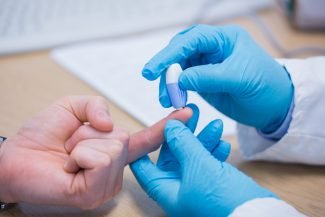Cholesterol
Since starting my nutrition practice a few months ago, I have seen clients who wish to reduce their cholesterol levels naturally. The first question I am asked: is it possible?
The simplest answer is yes, but here’s an overview as to how changes in diet and lifestyle can help to maintain a healthy level of blood cholesterol.
What is cholesterol?
An essential fatty substance that is transported in the blood via proteins with specific functions for hormone and vitamin synthesis, maintaining cellular membranes and bile production. Cholesterol is largely produced in the liver and forms a number of lipoproteins, some of which you will be more familiar with: Low Density Lipoprotein (LDL) and High Density Lipoprotein (HDL).
Good or bad?
It’s common to hear the association of good versus bad cholesterol, with HDL acting as the good form, taking back excess cholesterol to the liver for repurposing and LDL playing the role of bad cholesterol when found circulating in high levels in the blood stream, increasing the risk of stroke and arterial diseases. In essence, due to their functioning roles this is a good analogy but it is important to remember that they are part of the same process.
How can diet and lifestyle maintain healthy cholesterol?
The quality of the food we eat is highly influential in our overall health, from the type of foods we choose to how we like to cook with them. Here are just a few key considerations, when adapting your diet to be protective against increased cholesterol levels.
Fibre
A diet rich in fibre from fruits, vegetables and cereals is essential for many aspects of health. By ensuring that your intake of fibre is at least 30g per day, you’re increasing the protective effects fibre has for inhibiting the absorption of dietary cholesterol and maintaining a healthy digestive system.
Fats
A large amount of dietary cholesterol comes from the fats found in processed meats such as sausages, full-fat dairy products like hard cheeses or creams and other processed foods including cakes and biscuits.
The fats found in these products are largely saturated and saturated fats must be restricted in the diet, to maintain a healthier lifestyle.
The Scientific Advisory Committee on Nutrition (SACN) published a report recently that showed saturated fats are responsible for high blood cholesterol and increased risk of heart disease. It recommends that not more than 10% of total dietary intake should be from sources of saturated fat and that alternative sources of unsaturated fats should replace saturated fat content, where possible. These foods include salmon, olive oil, nuts, seeds and avocados.
Cholesterol in foods
While some foods contain cholesterol such as eggs and prawns, it’s more important to reduce the level of saturated fat in your diet, as this has more of an impact on your blood cholesterol.
Simply by choosing leaner cuts of meat, cooking without fats by either poaching or grilling foods and snacking on high fibre options like fruit, nuts and seeds will all help to contribute towards a healthier diet and reduced cholesterol.
Testing your cholesterol

Your total cholesterol (TC) should be lower than 5mmol/L to be considered healthy. A TC reading higher than 5mmol/L requires dietary and lifestyle changes and if this is not effective, you will need to speak to your GP or health professional about supplementation or medication, in order to avoid increased risk of vascular diseases.
If you’re not sure what your TC level is and you’d like to have it tested, you can do so with an express diagnostic finger prick test. A service which is offered here for just £20 to non-clients (£10 – existing clients), as part of a standard health check appointment that also monitors blood pressure and blood glucose levels, as required.
To find out more, contact us via our contact page or call us now on 01359 408 011.
